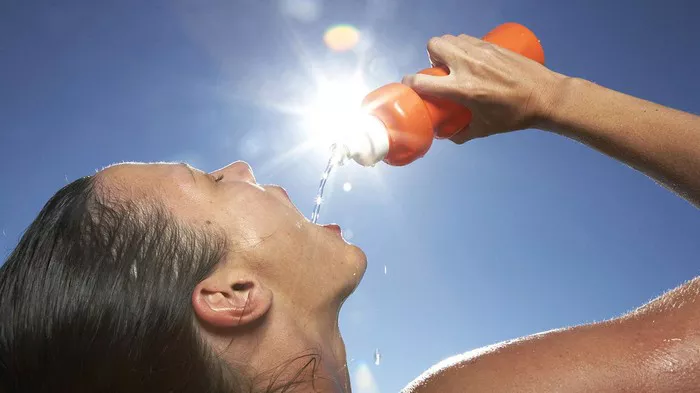Dehydration is a common yet potentially serious condition that occurs when the body loses more fluids than it takes in, leading to an insufficient amount of water and electrolytes to carry out normal bodily functions. As a cardiovascular cardiologist, understanding dehydration’s impact on the cardiovascular system and overall health is crucial, given that fluid balance directly affects blood volume, blood pressure, and cardiac output.
What Is Dehydration?
Dehydration is defined as a deficit of total body water, with an accompanying disruption in electrolyte balance, particularly sodium and potassium. It can range from mild to severe and, if untreated, may lead to complications such as hypovolemic shock, kidney failure, or even death.
Causes of Dehydration
1. Inadequate Fluid Intake
The most straightforward cause is not drinking enough water to meet the body’s needs, which can happen due to forgetfulness, lack of access to fluids, or inability to communicate thirst, especially in infants and older adults.
2. Excessive Fluid Loss
Sweating: Profuse sweating during strenuous exercise or hot weather leads to significant fluid loss.
Gastrointestinal Losses: Vomiting and diarrhea cause rapid loss of fluids and electrolytes, increasing dehydration risk.
Fever: Elevated body temperature increases fluid loss through sweating and respiration.
Medications: Diuretics (water pills) increase urine output, leading to dehydration if fluid intake is not increased accordingly.
Alcohol Consumption: Alcohol acts as a diuretic, promoting fluid loss and impairing hydration.
Medical Conditions: Diabetes mellitus, kidney failure, burns, and hormonal disorders like Addison’s disease or arginine vasopressin deficiency can increase fluid loss or impair fluid regulation.
3. Special Populations at Risk
Infants and Young Children: Their smaller body fluid reserves and inability to communicate thirst make them vulnerable, especially when ill with vomiting or diarrhea.
Older Adults: Reduced thirst sensation and potential cognitive impairments increase dehydration risk.
Symptoms of Dehydration
Mild to Moderate Dehydration Symptoms
- Thirst and dry mouth
- Decreased urine output with dark yellow urine
- Headache and dizziness
- Constipation
- Dry, cool skin with reduced sweating
- Muscle cramps
- Fatigue and weakness
- Flushed or pale skin
- Low blood pressure and rapid heartbeat in some cases
Severe Dehydration Symptoms
- Extreme thirst and very dry mouth, lips, and tongue
- Little or no urination; urine may be very dark
- Sunken eyes and cheeks
- Confusion, irritability, or lethargy
- Rapid breathing and heartbeat
- Low blood pressure leading to dizziness or fainting
- Loss of consciousness in extreme cases
- Cold, clammy skin and signs of hypovolemic shock (e.g., flattened neck veins)
Symptoms in Infants and Children
- Sunken soft spot (fontanelle) on the head
- Few or no tears when crying
- Fewer wet diapers or no urination for extended periods
- Irritability or extreme sleepiness
- Dry mouth and tongue
- Cool, blotchy hands and feet
Diagnosis of Dehydration
Diagnosis is primarily clinical, based on history and physical examination, including assessment of vital signs, skin turgor, mucous membranes, urine output, and mental status. Laboratory tests may include serum electrolytes, blood urea nitrogen, creatinine, and hematocrit to assess severity and electrolyte imbalances.
Treatment of Dehydration
General Principles
The cornerstone of dehydration treatment is restoring lost fluids and electrolytes. The approach depends on the severity of dehydration, patient age, and underlying cause.
1. Mild to Moderate Dehydration
Oral Rehydration: Drinking water is essential, but fluids containing electrolytes are preferred, especially in cases of diarrhea or vomiting. Oral rehydration solutions (ORS) contain a balanced mix of salts and sugars to optimize fluid absorption.
Suitable fluids include:
- Commercial ORS (e.g., Pedialyte)
- Diluted fruit juices
- Broths or soups
- Diluted sports drinks for older children and adults (1 part sports drink to 1 part water)
Avoid caffeinated, sugary, or alcoholic beverages as they can worsen dehydration.
2. Severe Dehydration
Intravenous (IV) Fluids: Required when oral rehydration is not possible due to vomiting, unconsciousness, or severe electrolyte imbalances. IV fluids typically contain isotonic saline solutions with electrolytes to rapidly restore blood volume and electrolyte balance.
Hospitalization may be necessary for monitoring and treatment of complications such as shock or organ dysfunction.
3. Special Considerations for Children and Infants
Frequent small sips of ORS are recommended.
Breastfeeding or formula feeding should continue, with additional fluids as needed.
Avoid fruit juices or carbonated drinks during illness as they may worsen symptoms.
Prevention of Dehydration
Drink fluids regularly throughout the day, especially in hot weather, during illness, or when exercising.
Monitor fluid intake in vulnerable populations such as infants, children, and older adults.
Replace fluids promptly during and after episodes of vomiting, diarrhea, or fever.
Avoid excessive alcohol and caffeine consumption.
Adjust medications that may increase fluid loss under medical supervision.
Impact of Dehydration on Cardiovascular Health
Dehydration reduces plasma volume, leading to decreased venous return to the heart and reduced cardiac output. This can cause low blood pressure (hypotension), tachycardia, and in severe cases, hypovolemic shock, which is life-threatening. The body’s compensatory mechanisms to maintain blood pressure can sometimes overshoot, causing blood pressure spikes.
Chronic dehydration may also strain the cardiovascular system, increasing the risk of arrhythmias and ischemic events.
Conclusion
Dehydration is a preventable and treatable condition that can have serious consequences if ignored. Early recognition of symptoms and prompt treatment with appropriate fluid and electrolyte replacement are essential to prevent complications.
Special attention should be given to at-risk populations such as infants, children, and older adults. Maintaining adequate hydration supports cardiovascular stability and overall health.
Related topics:


